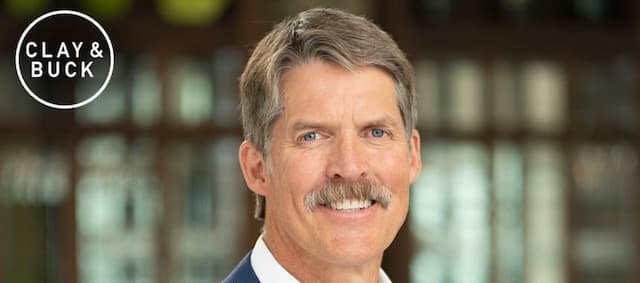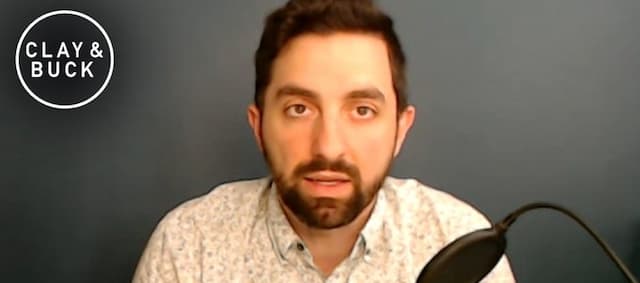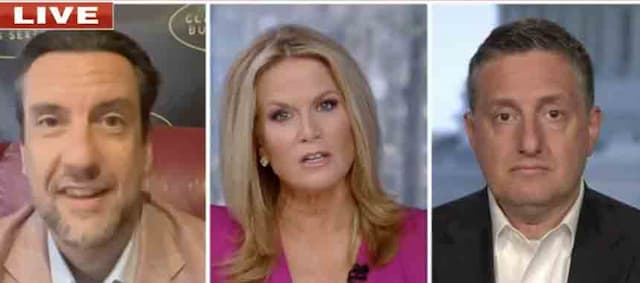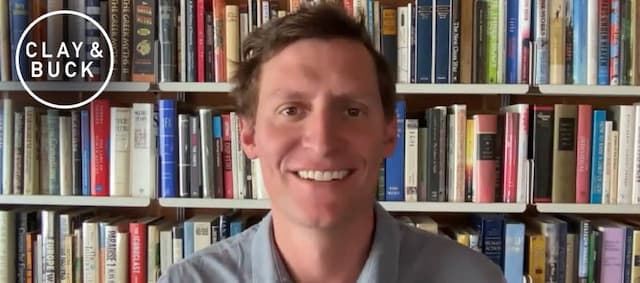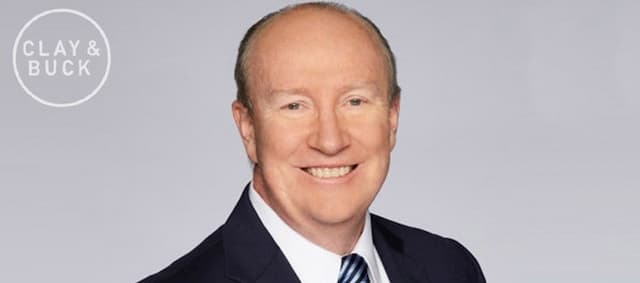Jared Kushner on the Mar-a-Lago Raid and His Book
CLAY: We’re joined now by Jared Kushner, senior adviser to President Trump. His book — Breaking History: A White House Memoir — is released today. Jared, what was the writing process like for you? Have you ever written a book? What was your experience like going through it? What did you learn about yourself?
KUSHNER: Well, first of all, Clay, it’s great to be with you, and big fan of your work and all that you guys do. So, for me, I’d never written a book before. So the first thing I did is, obviously I’d read a lot of books, but I took a master class online from James Patterson, and I went through his process. And what I learned from the way he does a book is that the outlining process is the most important part of it.
 If you write a good outline, you can write a great book. And so I spent the first three months really trying to catalog all of my different experiences and figure out how I weave them all together. What I wanted readers to feel was the excitement that we felt every day where we had obviously the onslaught of the investigations into Russia and the false impeachments and the congressional inquiries.
If you write a good outline, you can write a great book. And so I spent the first three months really trying to catalog all of my different experiences and figure out how I weave them all together. What I wanted readers to feel was the excitement that we felt every day where we had obviously the onslaught of the investigations into Russia and the false impeachments and the congressional inquiries.
But also the accomplishments and how we navigated through as outsiders in Washington to go through all of the different challenges that Trump wanted to do, whether it was creating trade deals with China and Mexico and Canada and Japan or whether it was the work we did in the Middle East or to create the Abraham Accords and all the peace deals or how we dealt with Congress and how we dealt with a very hostile Washington.
So, I think I was able to capture the excitement, and it’s a very fast-paced read. But I learned a lot about myself. It reminded me of a lot of the challenges from earlier in my time in Washington that I probably repressed or had forgotten. But really coming up and telling that story was I think very important to do for people to really understand what happened inside the Trump White House with all the fascination that’s occurred about it for so many years.
CLAY: I’m glad you mentioned James Patterson. I finished his book recently. I think it’s called, like, James Patterson on James Patterson about his life story, and obviously many of you out there I’m sure have read some of James Patterson’s thrillers. But that book was really entertaining, easy, quick read for people out there who may want something. And I sure encourage people to go buy Jared’s book as well. Where were you, Jared, when you found out about the Mar-a-Lago raid and what was your initial reaction?
KUSHNER: My wife and I were actually in Rochester. We were doing some checkups at the Mayo Clinic. And we were really shocked by it, to be honest. It just feels like we’ve been living through this over and over again where, for the last six years, I mean, first they spied on Trump’s campaign, and that’s been proven. You know, they falsified FISA warrants to be able to do that.
We went through two years of inquiries where they basically promised that Trump was a Russian spy and they refused to accept the results of the 2016 election. And we had to go through that. I personally sat for over 16 hours of congressional and special counsel testimony in order to show them that he ran an incredible campaign and won fair and square, all while trying to get our work done, and we dealt with the impeachment.
And I write about a lot of this in my book. I think it’s just time and time again that Trump drives his enemies so crazy that they just go over the top and they break all the norms and push aside all their morals in order to try to get him. And so I was very, very shocked that they would do this. To raid the home of your strongest political opponent is something that happens in Third World countries, and it seems like over something that could have been worked out between lawyers to the degree that there was an issue.
CLAY: Were you a political guy before Trump decided to run for president, and what was that actually like for you to have a father-in-law who suddenly is running for president?
 KUSHNER: So, those are interesting questions. I’d studied, obviously, political theory when I was in college at Harvard, and I obviously was involved also with… You know, when you’re in the real estate business, you’re always dealing with local politicians and zoning issues, and politics does affect your businesses because people can move, but buildings can’t move. So, you’re vested in politics.
KUSHNER: So, those are interesting questions. I’d studied, obviously, political theory when I was in college at Harvard, and I obviously was involved also with… You know, when you’re in the real estate business, you’re always dealing with local politicians and zoning issues, and politics does affect your businesses because people can move, but buildings can’t move. So, you’re vested in politics.
But I was never thinking to get actively involved. I write about my time that I was working at the Manhattan district attorney’s office. I thought when I was in NYU Law, I thought I’d maybe be a prosecutor. But it was tough. When my father got arrested, I saw that prosecutors left unchecked and often with political motives can really destroy families and have big impacts on people. And it just changed my point of view.
And I was forced at that point to go into business and really help my father’s company. And then I had the chance to build my own companies over the next years. And then with Donald as your father-in-law, nothing was ever boring, and he said he wanted to run for president, and with him (chuckles) there was always something exciting happening. And it was different than when he told us you’re getting inducted into the WWE Hall of Fame, which was also another adventure.
CLAY: (laughing) Did you grow up a wrestling fan, by the way?
KUSHNER: Who didn’t grow up a wrestling fan? Of course we did! But I never dreamed that my father-in-law would be in the WWE Hall of Fame, but I also never dreamed he’d be president.
 CLAY: (laughing)
CLAY: (laughing)
KUSHNER: So he announced he was running, and we were all very supportive of it. But none of us really knew what we were getting into. And I write about it in the book a lot of the different adventures that we had and also for me as somebody who was more of a independent centrist from the Upper East Side of Manhattan who basically started exploring the country and understanding the people who were supporting Trump and starting to see that he was a pragmatist on the issues and he represented people who didn’t have a voice in Washington.
And then being a part of that journey as a fellow outsider to help him fight for all the different policies that he believed in that were against the interests of the Big Business and the Washington establishment was just a thrilling adventure. But they weren’t gonna give up easily, and they fought back viciously. And that’s a lot of the topics that are covered in the book.
CLAY: You did a tremendous amount of work to try to bring peace to the Middle East. And I think you got almost no credit for that. And I think part of it’s ’cause of who your father-in-law is and the administration that you were in. But I saw always really impressed by it. And as part of that, maybe the most ridiculous criticism that we heard against Trump — which took over and over media attention on — you have three kids.
I believe you’re Jewish, and I believe you’re raising those three kids as members of the Jewish faith. When you hear that your father-in-law, the president of the United States, is an awful, racist, anti-Semite — which is regularly levied against him — what is that like? I mean, you know it’s not true, but it’s just such a nasty accusation. I’m curious, as someone of the Jewish faith who is raising the grandchildren of the president in that faith, what was that experience like?
KUSHNER: So at first it was a little bothersome, but then it kind of became less bothersome because you realize that those accusations told you more about the people who were making them than about the people they were making the accusation of, right? So I’m a big believer in finding your own truths, and that’s a lot of what my adventure was, and I write about in the book my journey of really exploration the different issues.
 But for Trump if you think about issues of race, you just have to look at his policy. He was an amazing president for black Americans. He worked very hard to pass Opportunity Zones, to bring capital to underserved communities. He fought for school choice to create better economic choice, better choice for people in communities so they can choose to not go to failing schools that are often in poor communities.
But for Trump if you think about issues of race, you just have to look at his policy. He was an amazing president for black Americans. He worked very hard to pass Opportunity Zones, to bring capital to underserved communities. He fought for school choice to create better economic choice, better choice for people in communities so they can choose to not go to failing schools that are often in poor communities.
He passed criminal justice reform, prison reform which were disproportionately helping the black community. And then in addition to that, under President Trump, the black community’s wage gains were the highest. And now the inflation that’s happened under Biden is really hurting the black community. And then from a Jewish point of view, President Trump was very supportive of Ivanka’s conversion and our raising our kids Jewish and respectful of our faith, and we did a lot of work to combat anti-Semitism.
And his work in the Middle East was truly historic. And I think that when he asked me to lead the efforts in the Middle East, people probably thought, “Well, the Middle East couldn’t get any worse.” If you remember in 2016 ISIS had a caliphate the size of Ohio, Syria was in a civil war where 500,000 people had been killed, Iran had just been given a pathway to a nuclear weapon and $150 billion which they were using to fund Hezbollah, the Houthis, Hamas. It was an absolute disaster.
And President Trump rebuilt our alliance with Israel, and he was a strong supporter of the U.S.-Israel relationship. He rebuilt our alliance with the Gulf countries, who felt very betrayed. And then we totally bucked the conventional wisdom that you had to deal with the Palestinians in order to make progress. And he was able to make the first peace deal in many decades between Israel and the United Arab Emirates.
And then with brawn and with Sudan and with Morocco and with Kosovo, which really is starting the end of the Arab-Israeli conflict, which has been one of the major courses of instability in the world over the previous decades. So it was a historic breakthrough. It took out-of-the-box thinking by a very unconventional president. And again, that’s why it was important for me to write my book because I wanted people to understand how he thought about it differently. And all the media was criticizing the efforts every step along the way, saying why they were wrong, saying why they would lead to war. But President Trump did it differently and created peace deals where nobody else was able to do that.
CLAY: We’re talking to Jared Kushner, senior adviser to President Trump. The book, Breaking History: A White House Memoir. Do you and Ivanka hope that he runs for president in 2024? How would that impact your family’s life? Do you tell him, “Yes, you have to do it”? What sort of conversations do you guys have about potentially that choice?
KUSHNER: So for us, first of all it was an honor for us to serve, but it takes a big toll on the family. You know, we’ve really enjoyed moving down to Miami. You know, it’s funny. We were gonna move back to New York and then it was February of ’21, and basically New York was like Pompeii. The schools were closed, the restaurants were closed, none of our friends were there. So we said, “Let’s give Florida a try.”
 I told Ivanka, “We’re about 30 years ahead of schedule, but let’s give it a shot,” and moving down there has been a real blessing for our family. So being away from government where you’re on the clock 24/7 with a lot of serious issues and you can subjugate the family, it’s been a really pleasure getting to know our children and spend time with our children, and we’ve been really enjoying our time back in the private sector doing some philanthropic work. And that’s really been our focus.
I told Ivanka, “We’re about 30 years ahead of schedule, but let’s give it a shot,” and moving down there has been a real blessing for our family. So being away from government where you’re on the clock 24/7 with a lot of serious issues and you can subjugate the family, it’s been a really pleasure getting to know our children and spend time with our children, and we’ve been really enjoying our time back in the private sector doing some philanthropic work. And that’s really been our focus.
With regards to President Trump, he’ll make his own decision. And we’re fully supportive of him and whatever he decides to do. But I think he’s having a very hard time watching the way that they’re destroying the country economically. The inflation is hurting the people that he was fighting so hard to lift up out of poverty. Under Trump, people were coming off of food stamps at record numbers. Inflation was low. Wages — real wage growth was really, really high.
Now the inflation is eating away at the Americans who need the relief the most. And then just on the world stage. I mean, you never would have had a war with Russia when Trump was in power. The media kept goading him and criticizing him for keeping a good relationship with Russia. But I write in my book about several interactions that Trump had with Putin that led to tangible results for America.
He saved our oil-and-gas sector, which, quite frankly, if the current administration would take the shackles off of could lower gas prices like crazy. But instead, they’re choosing to go and beg Iran and Venezuela for oil, which makes no sense to me. And with China. I mean, they’re being very provocative with Taiwan. But for four years under President Trump, none of that happened.
So I think President Trump really had a very unconventional foreign policy. But I think it was an historic policy. And it wasn’t a rebuke of the Democrats. It was a rebuke of the Democrats and the Republicans who had been in Washington before him who, quite frankly, had squandered America’s unchallenged leadership place in the world that they inherited starting in the late nineties.
CLAY: Good stuff, Jared Kushner. Encourage everybody to check out the book, and we appreciate the time.
KUSHNER: Thank you. It’s an honor to be with you, and good luck with everything.

